As practice shows, the arrest of criminals in more than half of the cases is carried out by the victims, and about 40% - by unauthorized entities and in less than 10% - by law enforcement officials. Rules and conditions of lawfulness in the detention of the person who committed the crimeare of particular practical importance. They provide not only guarantees for the rights of detainees themselves, but also detainees. 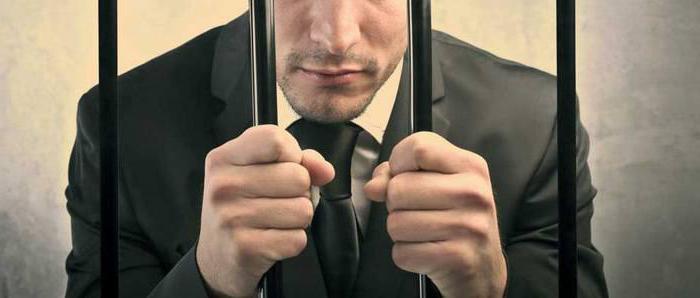
Grounds for the detention of the offender
Not every act of detention of a citizen involved in an unlawful act is considered to be legal. The right to detain a person who has committed a crime arises if:
- The subject has committed a completed act or part of its objective part and is trying to hide. In this case, the basis for the detention of the attacker may not be any, but only intentional or reckless, representing a high public danger, crime.
- The person is caught at the scene of the act or immediately after it. In this case, ordinary citizens can also detain an attacker. In other situations, such actions relate exclusively to the powers of law enforcement officials.
- A person detaining a criminal pursues 2 goals: bringing the guilty party to the police and suppressing subsequent illegal actions. Murder in the detention of the offender, or other reprisals against him is not allowed.
Citizens detaining a criminal must be sure that this particular subject is involved in an unlawful act. In other words, the attacker:
- caught at the scene;
- eyewitnesses of the deed point to it;
- on the suspect, his clothes detected signs (traces) of the crime.
Punishment exclusion
In 1 part of Art. 38 of the Criminal Code an important rule has been enshrined, which should be guided by persons detaining a person who has committed an unlawful act. It is not considered a crime to harm a criminal during his detention in order to suppress probable illegal actions and bring him to the police, if it was impossible to detain him by other means, and at the same time, exceeding the required measures was not allowed. 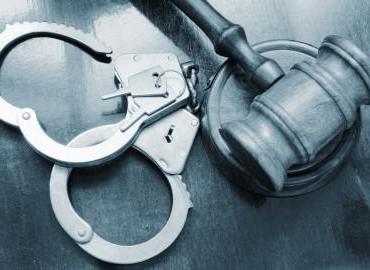
Exceeding the measures during the detention of the person who committed the crime shall be deemed to be their apparent inconsistency with the degree and nature of the danger, the circumstances of the detention, if the guilty person was unnecessarily inflicted excessive harm. Such actions entail liability on a general basis if they were committed intentionally. The corresponding position is fixed in 2 parts Art. 38 of the Criminal Code.
Explanations
As shows judicial practice under Art. 38 of the Criminal Code, the key criterion for the legitimacy of the actions of persons detaining the perpetrators of crimes is the proportionality of the harm done to the attackers. Non-compliance of damage is not allowed:
- The severity of the deed. For example, a citizen convicted of pickpocketing for an insignificant amount cannot be inflicted grievous bodily harm.
- The identity of the attacker. When a repeat offender, a particularly dangerous criminal is detained, more serious harm may be caused than when the unlawful actions of the person committing them were stopped. Equally important is gender, age, and the number of criminals.
- The nature of the resistance exerted by the detainee.Resistance is expressed in active actions, which should be delimited from disobedience, i.e., passive behavior. The latter is manifested, for example, in the refusal of a citizen to go to the police. If a person does not shirk responsibility, his place of residence, personality are established, there are no grounds for harm.
- The situation of detention. In martial law and emergency, it is permissible to apply more stringent measures to criminals.
Characterization of legitimacy
As follows from the provisions of article 38 of the Criminal Code, harm during detention of the person who committed the crimeshould be minimized. Assessment of the consequences is carried out in the study of all circumstances prevailing at the time of detention. 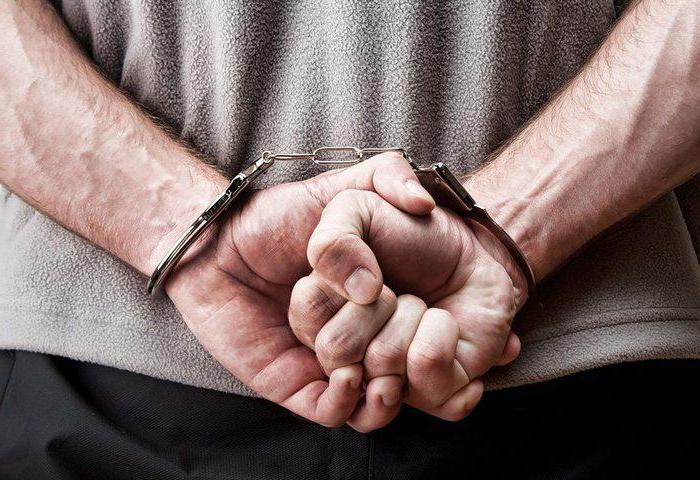
In the sense of 38 norms, the suppression of the actions of an attacker can be regarded as socially useful, lawful behavior. Detention can be carried out both by the victim himself or by eyewitnesses, and other citizens. Moreover, the article directly indicates the purpose of such actions. Causing harm during the detention of the person who committed the crime, takes place, as a rule, when resisting them, trying to escape from the scene.
Features of the legality of action
The conditions of lawfulness to suppress unlawful behavior of a subject are divided in science into those related to the implementation of the detention order and the basis for applying coercive measures.
The basis for the detention of a citizen by inflicting physical harm on him, as a rule, is his assault and the desire to evade responsibility for this.
The appropriateness of the actions of the detainee depends to a greater extent on the level of social danger of the act itself and a number of other factors. The latter, in particular, take into account the armament of the attacker, the likelihood of him committing a new illegal action, and so on.
The grounds for the detention of a citizen by means of harm may not be, for example, crimes such as:
- Abandonment in danger.
- Slander.
- Violation of confidentiality of telephone conversations, correspondence, telegraphic and other messages.
- Insult.
As a rule, harm during detention is inflicted on murderers, thieves, rapists, robbers, other persons who committed acts, the high degree of danger of which is obvious. 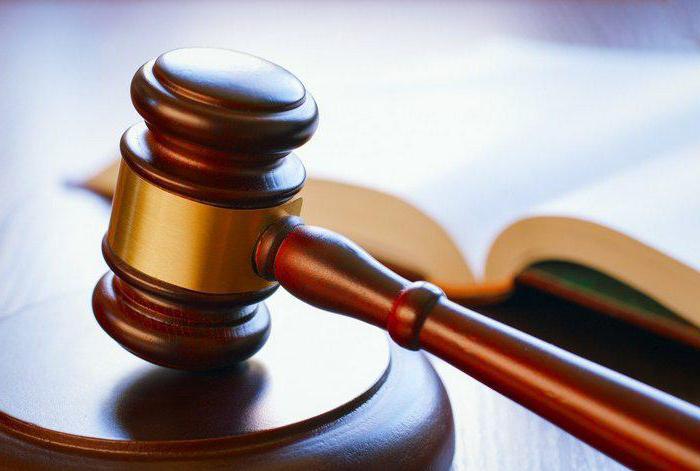
Important point
Reason for harm during detention of the person who committed the crimecannot be:
- previous conviction;
- age;
- negative reputation of a citizen;
- Drunk.
These and some other individual characteristics of the subject can be considered as additional circumstances.
Mandatory conditions
Causing harm during the detention of the person who committed the crime, will be considered lawful if a citizen by his actions expresses unwillingness to be delivered to law enforcement agencies, tries to escape, expresses threats against the entities detaining him. Moreover, this behavior should be cash. It should take place in the immediate attempt to detain the face.
The order of suppression of illegal behavior
When detaining a criminal, it is necessary to be guided by the provisions of Article 91 of the Code of Criminal Procedure. This norm establishes the basis for the suppression of the unlawful behavior of a citizen, for which imprisonment may be charged. The detainee must have reasonable confidence in the involvement of the subject in the crime. 
Difficulties in applying norms in practice
It must be said that the legal assessment of the detention procedure as a lawful act cannot be strictly linked to the circumstances specified in article 91 of the CPC. The fact is that in a real situation, a detaining citizen performs actions in extreme conditions. Often, he is not always able to adequately assess the circumstances and, accordingly, make a balanced, correct decision.
Detention is recognized as lawful if it is committed on time and when necessary. If a citizen does not try to hide, does not pose a danger to others, the use of violent acts against him is not allowed.
Consider an example. The person committed a pocket theft, after which he was pursued by eyewitnesses and the victim. Running away from the pursuers, the thief ran into the entrance of the apartment building and began to climb the stairs. At this time, the victim shot him and wounded. In this situation, the use of violent acts was not necessary. Firstly, the committed crime is not serious, and secondly, the attacker still could not escape. As a result, when considering a case in court, the victim was held liable for bodily harm. 
Scope of Measures
In assessing the legitimacy of the harm caused in the suppression of criminal acts, their proportionality to the level and nature of the danger is of great importance. If violent acts are applied to the offender that clearly do not correspond to the circumstances and categories of the act, then they entail liability under the Criminal Code, if committed intentionally.
It is, in particular, about independent reprisal, lynching of an attacker. Investigation, legal assessment of an act, imputation and execution of punishment are within the competence of the relevant authorities. Ordinary citizens are not empowered to independently judge a person, no matter what he committed a serious act. Otherwise, the detainee becomes a criminal himself. 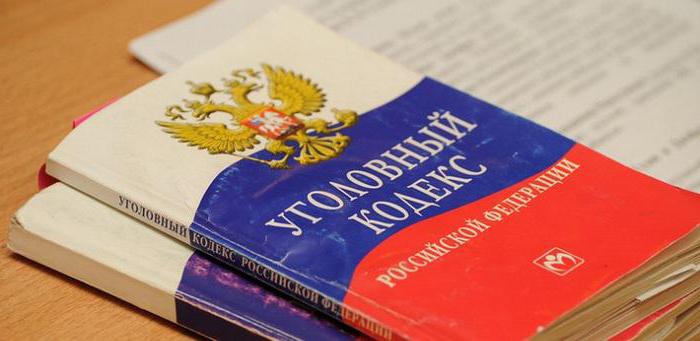
Conclusion
In practice, it is far from always that law enforcement agencies manage to arrive at the scene in a timely manner and detain an attacker. The suppression of unlawful actions of another person is the civic duty of any person. However, one should not forget about the need to comply with the requirements of the law. Detention of a criminal is only lawful and socially useful when the rule of law is respected.